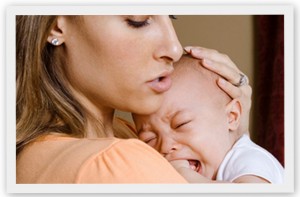 Sleep training is sold as being beneficial, not just to the sleep deprived parent, but also to the baby who apparently learns to “self-soothe”. However the lead researcher, Wendy Middlemiss, of a recently published study provides evidence that although the babies soon display lessened distress at the lack of responsiveness from their parent during sleep training, their cortisol levels show that their distress is still as high as it was on day one of sleep training.
Sleep training is sold as being beneficial, not just to the sleep deprived parent, but also to the baby who apparently learns to “self-soothe”. However the lead researcher, Wendy Middlemiss, of a recently published study provides evidence that although the babies soon display lessened distress at the lack of responsiveness from their parent during sleep training, their cortisol levels show that their distress is still as high as it was on day one of sleep training.
Referring to the contrast between greatly decreased expressions of distress through crying compared to the distress measured physiologically, it was found that;
“Although the infants exhibited no behavioural cue that they were experiencing distress at the transition to sleep, they continued to experience high levels of physiological distress, as reflected in their cortisol scores.”
However, the debate continues about whether the baby is actually learning to self-regulate their emotions, or if they are in fact learning to suppress their cries because their expressions of distress have proven to be ineffective in influencing their caregiver to respond to their needs.
The study published by Wendy Middlemiss, Associate Professor of Educational Psychology, researched at the University of North Texas, examined the levels of the hormone cortisol as babies were left to fall asleep without comfort from a carer. Using babies aged four to ten months, the research examined physiological and behavioral impacts of the mother-infant interactions during participation in a 5-day residential sleep training program in New Zealand.
Researchers measured the length of time they cried over successive nights, as their mothers waited in a nearby room. By the third night of the study, infants were found to have cried for a shorter period of time before falling asleep.
The study found:
“On the third day of the program, results showed that infants’ physiological and behavioral responses were dissociated. They no longer expressed behavioral distress during the sleep transition but their cortisol levels were elevated.”
“On the third day of the sleep training program, infants no longer exhibited behavioral cues indicating presence of distress. Rather, as anticipated based on previous research and program expectations for infants’ behavior, infants’ vocalization of distress at transition to sleep without caregiver response was absent. However, an examination of infants’ physiological state identified a disconnect in infants’ behavior and physiological expressions of distress.
Although infants exhibited no behavioral cue that they were experiencing distress at the transition to sleep, the infants continued to experience high levels of physiological distress, as reflected in their cortisol scores. Based on analyses in this study, infants’ cortisol levels did not differ significantly on the first and the third day of the sleep training program. Thus, infants’ internal physiological distress levels did not change but remained high despite absence of infants’ behavioral cues of distress through vocally signalling distress to the mother. Overall, outward displays of internal stress were extinguished by sleep training.”
Details of the study can be found here
The study puts a lot of focus on the effects of mother and infant losing synchronicity as the mother’s stress levels decreased as their baby’s crying decreased, whereas the baby’s stress levels remained high. Mother-infant behavioral synchrony is foundational in the development of the infant’s cognitive, social-emotional, and self-regulatory skills.
The study explains:
“Synchronous interactions are also foundational to the development and maintenance of a secure mother-infant attachment. For example, Isabella and Belsky found that synchronous interactions when infants were 3 and 9 months of age were predictive of secure attachments when infants were 1 year of age, while asynchronous interactions were predictive of insecure attachments.”
What Robin Grille, psychologist, psychotherapist and author of three parenting books has to say about the study in this blog post: “What this research does not tell you is that when cortisol levels remain high, the cortisol can begin to destroy neurons in the emotional-regulation regions of the child’s brain. Controlled crying is a cultural practice in a few Western nations, and it risks reducing brain matter in the areas related to emotional intelligence.”
This was reported in this article by Examiner.com “The researchers found high levels of cortisol, a stress hormone, in both the mothers and the babies during the times the babies were crying. After several days, the babies learned to go to sleep without crying. Researchers found that during these quiet nights, the mothers no longer had high cortisol levels but the babies’ cortisol levels remained high. They had merely learned to remain quiet while distressed.
Read some well thought out and researched thoughts on the subject by John Hoffman, Canada’s most popular parenting columnist in this blog post
Parents do need and deserve their sleep, and there are ways that a parent can help their child change their patterns without ever leaving the baby unattended when they want and need connection and comfort.
You might also like to read:
Relaxed settled baby’s tend to sleep better
Children and babies can heal through in arms crying
Why do many parents struggle to cope with their child’s cries?
Secure attachment fosters emotional and social intelligence

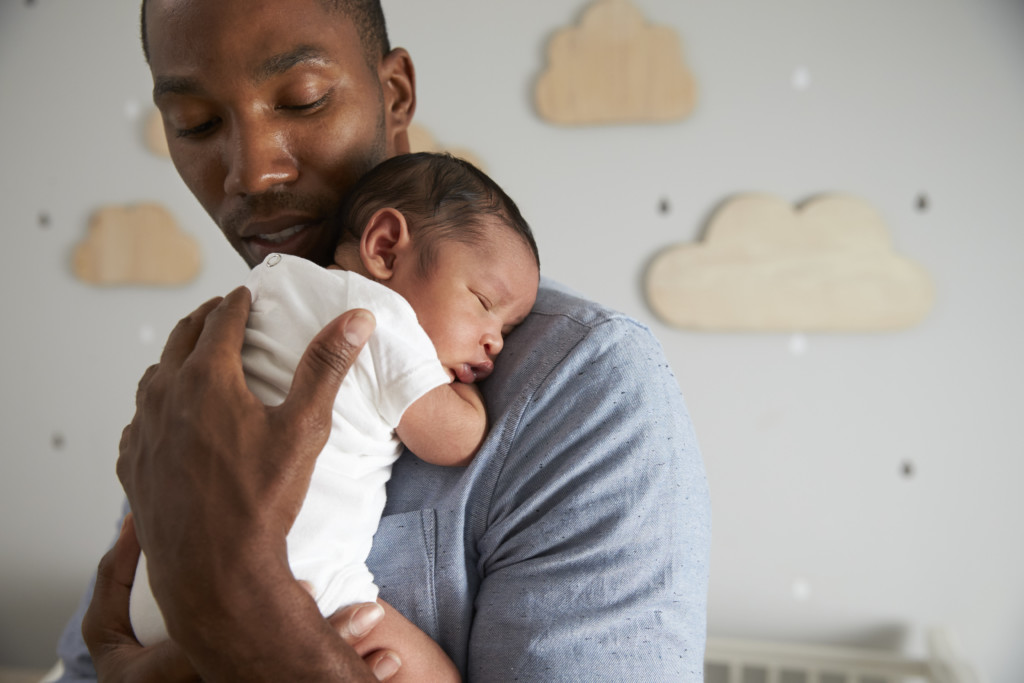
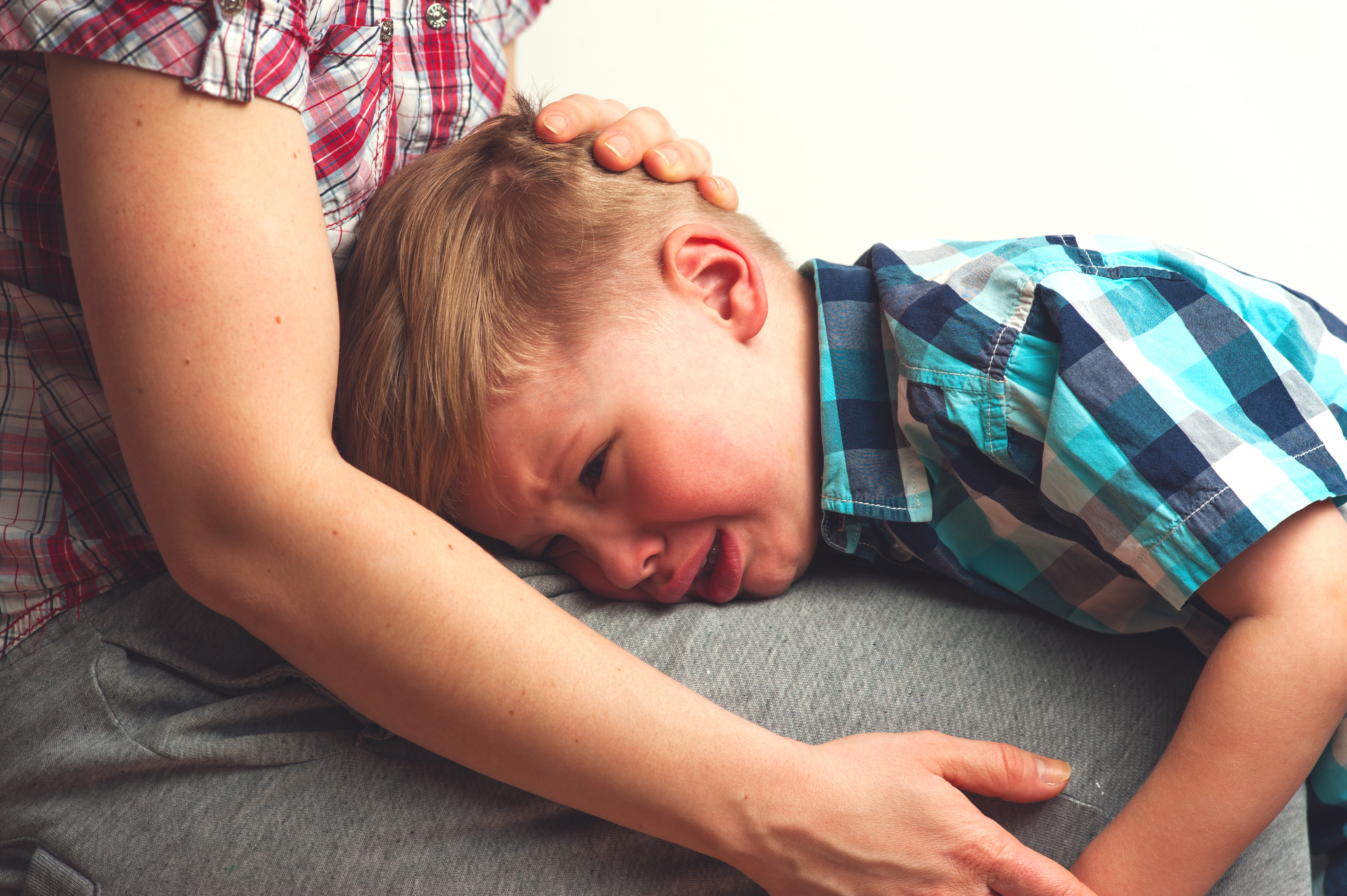
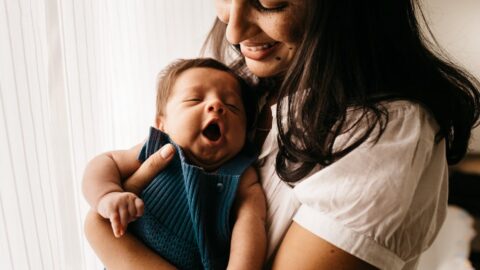
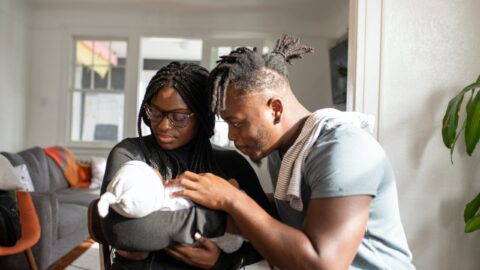
How very sad for those babies going through sleep training. I don’t know how anyone can sit by and listen to baby crying and not go to them. All babies eventually sleep through the night and while its stressful for mummy and daddy that’s what you sign up for when you have babies. My lo is now 2.5 we have co-slept and breast fed through out. For most of that time she woke up every half hour most nights… it was exhausting at times… stressful to say the least. Now I lay with her and she breast feeds to sleep which takes between 5 and 20 minutes depending on how tired she is.. then I pop her off and move her to her bed where she sleeps the rest of the night. Letting your baby feel alone, scared isolated to the point that they stop crying because no one will come to them anyway should be deemed neglect and not much different to the NSPCC advert “miles is a quiet baby, he has learnt that no one comes whether he cries or not”
If you take your baby with sleeping issues to any Community/ Early Childhood Health Centre here on the Central Coast / Australia and ask for advice, they will send you to the Family Cottage in case it is a big problem. And what they do there is basically teaching you how to leave your baby crying. 🙁
the babies stop crying because they give up – what they need isn’t coming